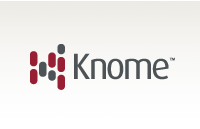Security of genetic information is an enormous concern for individuals, and thus an enormous concern facing commercial genetic enterprises. I was recently having a conversation with someone about the security of genetic and personal information at companies such as 23andMe and Navigenics, and I pointed out that the very livelihood of these organizations depends on their ability to secure information. A single security breach could potentially drive away future customers.
On that topic, Ryan Calo, a residential fellow at Stanford Law School’s Center for Internet & Society writes about a panel discussion held at the law school (pdf poster here):
“With a credit card and a saliva sample, consumers can now unlock the secrets carried in their DNA. Consumer genomics offers direct access to one’s genetic code, plus interpretations of health risks, family lineage, opportunities for social networking, and more. But how should consumer genomics be regulated? Join us for a panel discussion with leaders at the forefront of consumer genomics (23andme and Navigenics), media commentators (Alexis Madrigal from Wired), and policy makers.”





 According to a 200-year-old family legend, Bettye Kearse – an African American – is the direct descendant of James Madison. Madison, of course, was a founding father and fourth President of the United States. As the story goes, he fathered a child name Jim with a slave cook named Coreen. For the past 4 years she and genetic genealogist Bruce Jackson of the
According to a 200-year-old family legend, Bettye Kearse – an African American – is the direct descendant of James Madison. Madison, of course, was a founding father and fourth President of the United States. As the story goes, he fathered a child name Jim with a slave cook named Coreen. For the past 4 years she and genetic genealogist Bruce Jackson of the  The eighth edition of the TGG Interview Series is with Max Blankfeld. Max is Vice-President of Marketing and Operations at
The eighth edition of the TGG Interview Series is with Max Blankfeld. Max is Vice-President of Marketing and Operations at